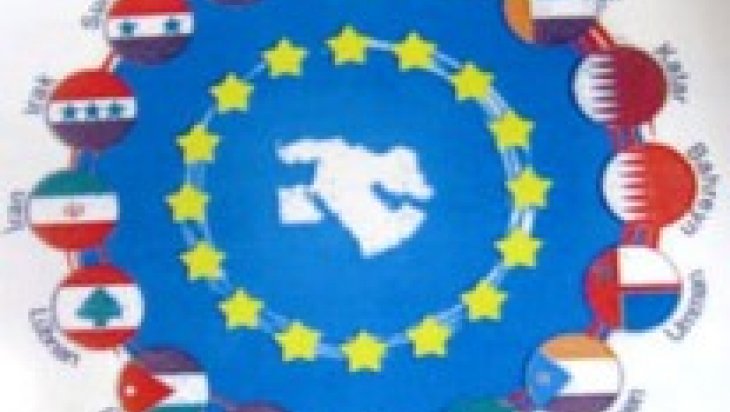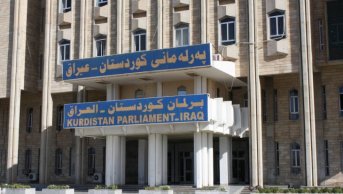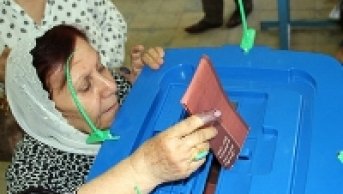Expectations in the Middle East in 2013

The Middle East has been shaken by a historical dynamism since the end of 2010. The regimes that had been built during the Cold War period, and the chain of relationship stemming from either partnership or hostility between those regimes underwent changes and and witnessed struggles among forces for many times in 2011. However, the demand for political change reached a relatively peaceful and a successful level only in Tunisia In countries such as Libya and Egypt, where the former regimes collapsed, the revolutionary process does not seem to have completed yet. On the other hand, the events in Syria which had started with civilian democratization demands turned into a total civil war. Despite the fact that countries such as Jordan and Kuwait could maintain stability, they are still at a fragile state. With the impact of events in Syria, Lebanon has been giving the signs that it could turn back to 1970s at any moment. Iraq, on the other hand, came to the forefront in the region during the end of 2012 for the first time since 2009. Iran and Israel come to the forefront through their moves in the foreign policy rather than their internal politics.
It cannot be argued that 2012 brought peace, prosperity and stability to the Middle East. As a matter of fact, 2012 will be remembered as the year when developments that already started in previous years continued rather than a year when a new dynamism started to a great extent. In this context, 2013 is not expected to be different from the previous year. However, considering that elections will be held in 4 most important countries in the region, it might be suggested that pre-electoral and post-electoral developments would affect internal policies and foreign affairs of these countries.
Israel: The first election of the year in the Middle East will be held in Israel. The parliamentary election to be held on 22 January 2013 is not expected to have different result than the elections held in the last 20 years. As a result of the electoral system in Israel, formation of a coalition government with at least three parties seems inevitable. Even though it is highly possible that the new electoral alliance which was formed by the alliance of two major right-wing parties of the country, Likud and Yisrael Beiteinu, towards the end of last year will come first in the elections; Prime Minister Netanyahu would drive a hard bargain again in the process of forming the new government. In Israel, which starts the new year with the process of the elections and the formation of the new government, the rest of the year might be expected to witness four major developments.
As the current situation in Israel is not about the revival of peace process, Israel should not be expected to take a positive step towards the Middle East Peace Process. However, the State of Palestine's settling its accounts with Israel in diplomatic environment within the framework of UN might lead to the emergence of new events in Israel-Palestine struggle compared to previous years.
As it has been for years now, one of the issues to be discussed also in 2013 is the possible outbreak of a war between Israel and Iran. It has been argued approximately for a year now that 2013 Spring will be the date when Israel will attack Iran. The authenticity of this discourse, which is most probably a result of the propaganda activities of Israel in the international area, is a controversial issue; but this point should definitely be underlined that: If Israel attacked Iran, this would be the end of balances in the Middle East.
The third important issue that could appear related to Israel is the repercussion of developments in Syria on Israel. Israel would avoid directly interfering in the Syrian issue like previous years. However, in case of a change of regime in Syria, alarm bells would start to ring in Israel.
The fourth issue might develop within the framework of the Israel-Egypt relations. One of the issues most wondered about after the toppling of Hosni Mubarak has been the future of Israel-Egypt relations. Despite the lack of a major change after the revolution, the election results in both countries might lead the relations between Israel and Egypt to reach its worst state.
The last point that needs to be underlined is a possibility. As it can be remembered, a conflict broke out firstly between Israel and Hamas, then between Israel and Hezbollah; and the Israel-Hezbollah War that lasted for about a month cost the lives of a great number of people. The main reason of outbreak of the conflict in 2006 was the escalation of change in political equation and the power balance in the region following the invasion of Iraq. The power struggle between Iran, Israel, Saudi Arabia, Egypt and Syria back then turned into a conflict in Lebanon. Nowadays, the developments in Syria and Iraq lead to a new instability in Lebanon. In case the civil war in Syria becomes worse and the Assad regime comes closer to being toppled, it seems highly possible that a new conflict would break out between Hezbollah and Israel in 2013 and a new conflict by proxy would break out in Lebanon.
Iran: Iran, which is one of the most important regional powers in the Middle East, will witness two elections in 2013. It is expected that on 14 June 2013 the presidential elections will be held in Iran, which has been implementing an extraordinary oppression mechanism even for itself to prevent an internal instability for a couple of years. It might be suggested that the regime in Iran that witnessed major internal conflicts after the last elections in 2009 will act much more cautious before this forthcoming election. It might be said that the candidate to be pointed out by the religious leader Ali Khamanei will win the elections. However, it would not be wrong to suggest that this time not only reformists but also some conservatives who allied with religious leaders in the past will compete with each other. As the current President Mahmoud Ahmedinejad will have completed his term of office by then, there might be a major political instability in the country both before and after the elections of which he will not be a part anymore.
The most important issue that would affect Iran the most in 2013 would probably be the developments in Syria. It would not be surprising for Iran, which has explicitly become a party to the civil war in Syria today, to maintain its direct supports for this regime to prevent the collapse of the Assad regime and also to persevere on Syria by crating various diplomatic maneuvers or crises in the international arena. It might be argued that in case of a collapse of the Assad regime; Iran, which would resort to its intermediaries from Hezbollah in Lebanon to pro-Iran militia forces in Iraq, would get into a tight corner. Therefore Iraq is becoming more important for Iran with each passing day. Within this context, it would not be surprising if Iran, which would like to maintain its efficiency on Shiites in Iran, kept striving to take Shiite Arabs to the streets in Bahrain and Saudi Arabia to demand more political rights.
The most critical development that might be brought up to the agenda within the context of Iran in 2013 could be in nuclear field. Mainly, it doesn't seem possible that ongoing negotiations and sanctions that have not gotten anywhere would deter Iran from its nuclear program. Furthermore, in 2013, Iran's producing materials that could be used for non-peaceful purposes in peaceful nuclear program, namely Iran's declaring that it fulfilled technical conditions of nuclear weapon production (not by directly stating that it produced nuclear weapon, but by declaring that it could make necessary uranium enrichment) might entirely affect the power balance the agenda in the Middle East. The most probable period of time when such a development could take place in the country might be either right before the elections or after the elections.
Iraq: Another country where elections will be carried out in the Middle East would be Iraq. Iraq, which will witness Provincial Council elections except for three provinces under the Kurdistan Regional Government (Duhok, Sulaymaniyah and Erbil) and Kirkuk on 20 April 2013, might witness important political developments. Basically, important problems of the country will repeatedly be brought up to the agenda. The status of Kirkuk, oil law, federalism and centralization issues will keep being the main problems of the Iraqi politics also this year as in previous years. Besides, the tension between Baghdad and Erbil that was inherited from 2012 will continue in 2013 as well, but most probably it will not turn into a major conflict. On the other hand, it would not be so wrong to suggest that 2013 will be a preliminary period for 2014 in terms of Iraq. The results of the Provincial Council election will be a very important indicator to designate political balances before the general elections to be held in 2014. Therefore, it would not be wrong to foresee that 2013 would be a year when all alliances will be entirely rearranged and the political atmosphere in the country will always be tense.
One of the most important developments expected to take place in Iraq in 2013 is situation of President Jalal Talabani. If Talabani had to leave his office (death or aggravating health conditions), new dynamics might appear not only in Baghdad but also in Erbil. The fact that Maliki supports a Sunni Arab candidate for Presidency to receive the support of Sunni Arabs in Baghdad would add to the problems he has already been going through with Kurds in the recent period. In the Kurdistan Regional Government, on the other hand, the future of PUK after Talabani and the balances for parliamentary in the region would be a matter of debate.
Egypt: In Egypt, which could not still complete the revolutionary process since the collapse of Hosni Mubarak since the beginning of 2011, it seems that 2013 will be quite dynamic in terms of the internal politics. The political polarization in Egypt, which will hold elections in the first months of 2013 after the controversial constitutional referendum, is increasingly going on. Even though the Egyptian people increasingly give less credit for the elections, they will still have to go to polls. However, the forthcoming election is quite more different than the others. If the bloc led by the Muslim Brotherhood won the elections again, the revolutionary process in Egypt would be almost completed. Even if it is hard to estimate the election results, it might be suggested that the elections will be quite competitive. It would not be surprising for the Muslim Brotherhood and Salafis to constitute majority in the parliament. The most important step of Egypt's foreign policy might be related to the relations with Israel. In case the revolutionary process in Egypt is completed, 2013 might be a critical turning point for Egypt to give up its policy it has been pursuing on the relations with Israel for 30 years and to adopt a much stronger discourse and attitude.
Syria: 2013 would probably be the year of Syria again in the Middle East. In an environment where the civil war in the country is getting worse, it seems highly unlikely that the Assad regime will see the end of this year. The successive gains of the opposition, and weakening regime indicates that the regime is about to collapse in Syria. However, the collapse of the regime will not be the end of events in Syria, and it will constitute the first pillar of an entire reorganization. Therefore, Syria will continue to be the issue that needs to be followed most closely in the region. The developments that are assessed sometimes in weeks and sometimes in days might carry Syria to the world agenda with different issues especially after summer.
Saudi Arabia: Saudi Arabia which is the country with biggest oil reserves of the world is becoming more important in the Middle East with each passing day. Saudi Arabia, which made great strides on turning its richness into a political power for the last couple of years, might rise in the world in the context of developments especially in Lebanon and Syria. In addition to this, two major developments that are expected to take place in Saudi Arabia in 2013 keep future of the royalty and and the opposition in the country under control. Considering the advancing age of King Abdullah and the fact that crown princes are all dead, 2013 might be an important year in terms of designating the leadership profile of Saudi Arabia in the forthcoming years. Even though the opposition in the country is weak, it will continue its struggle. Although the struggle of the opposition does not constitute a strategic threat for Saudi Arabia, the Shiite opposition in Saudi Arabia in the equation of Shiite-Sunni struggle across the Middle East should be closely followed.
Palestine: Expecting 2013 to bring peace and solution to Palestine would be a big optimism. The most important agenda of Palestine this year might be the result of the leadership struggle between Hamas and Fetih which is at a deadlock. Although election is the best way for the parties in Palestine to overcome their problem, both actors approach suspiciously towards the election. However, in Palestine where both parliamentary and presidential elections are already delayed, internal reconciliation might be a historical turning point. Besides, even if the internal reconciliation took place, starting a process of a realistic and sincere final solution should be expected neither in Israel nor in the U.S. due to the lack of a driving force to establish Israel-Palestine Peace.
The countries to take into consideration:
In addition to prominent states in the region, it would be good to carefully follow three other countries: Lebanon, Jordan and Bahrain.
Lebanon is always inclined to instability as it is open to be affected by the power struggle in the region. Therefore, the country might be expected to be drifted into an internal disorder after the general election that is expected to be held in 2013, even if political problems do not much come to the forefront in the country yet. Both the impact of the events in Syria and also the power struggle on Lebanon between Saudi Arabia and Iran might lead to a quite tense year in this country.
Jordan seems to be a relatively less affected country in the Arab Spring. However, the escalating tension between the King of Jordan and the opposition might lead to an outburst of this country at any moment. If the political tension in Jordan, which has kept silent so far, turned into an outburst, all eyes might be focused on this country.
In Bahrain, one of the first stops of the Arab Spring and where it was suppressed most effectively, the opposition has not given up its demands. Bahrain, where the efforts for negotiations have not given any results for 1.5 years, might witness quite interesting developments.









